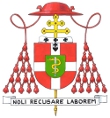by Willem Jacobus Cardinal Eijk, archbishop of Utrecht, Responsible for medical-ethics questions on behalf of the Dutch Bishops’ Conference and member of the Pontifical Academy for Life
In the case of (voluntary) euthanasia the physician administers by way of an injection or a drip a lethal dose of drugs in order to terminate the life of the patient at his request. One speaks of medically-assisted suicide, when the patient himself takes a lethal dose of drugs, prescribed intentionally by his physician in order to enable the patient to terminate his life. In the first case the physician performs the life terminating act, in medical-assisted suicide the patient himself performs the act which terminates his life.
In euthanasia as well as in medically-assisted suicide the patient takes the initiative to (make) terminate his life, which implies that he in both cases bears the same responsibility for his death. In euthanasia it is the physician who performs the killing act, which is intrinsic evil. In medically-assisted suicide the physician cooperates in terminating the patient’s life. Because he approves of the patient’s intention to end his life, his cooperation is formal (and not material). Formal cooperation in an intrinsically evil act is in itself intrinsic evil. Consequently, there is no significant moral difference between medically-assisted suicide and euthanasia, neither from the patient’s side, nor from that of the physician. Both bear the same moral responsibility in euthanasia as well as in medically-assisted suicide. The only difference is perhaps that medically-assisted suicide brings about less psychic tensions for the physician that euthanasia.
When one would allow medically-assisted suicide, one is confined to also allow euthanasia. Stating that by agreeing with the legislation of medically-assisted suicide one could prevent the legislation of euthanasia makes no sense. One would simply and automatically pave the way for legalizing euthanasia, because the ethical difference between both is not significant.
Would it be possible to apply to this case paragraph 73 of John Paul II’s encyclical Evangelium vitae, in which he writes: “A particular problem of conscience can arise in cases where a legislative vote would be decisive for the passage of a more restrictive law, aimed at limiting the number of authorized abortions, in place of a more permissive law already passed or ready to be voted on … in a case like the one just mentioned, when it is not possible to overturn or completely abrogate a pro-abortion law, an elected official, whose absolute personal opposition to procured abortion was well known, could licitly support proposals aimed at limiting the harm done by such a law and at lessening its negative consequences at the level of general opinion and public morality.” Pope John Paul II does not qualify this as an illicit form of cooperation in an unjust or imperfect law.
However, voting for a law by which medically-assisted suicide is allowed by no means implies a restriction to legalizing euthanasia. So the paragraph of Evangelium vitae, mentioned above, is not applicable to this case. On the contrary, legalizing medically-assisted suicide automatically paves the way for legalizing euthanasia as the next logical step. For no significant moral difference exists between medically-assisted suicide and euthanasia.
Cardinal Eijk comments the position of two other members of the Pontifical Academy for Life, as pointed out in the National Catholic Register and La Vita Cattolica



